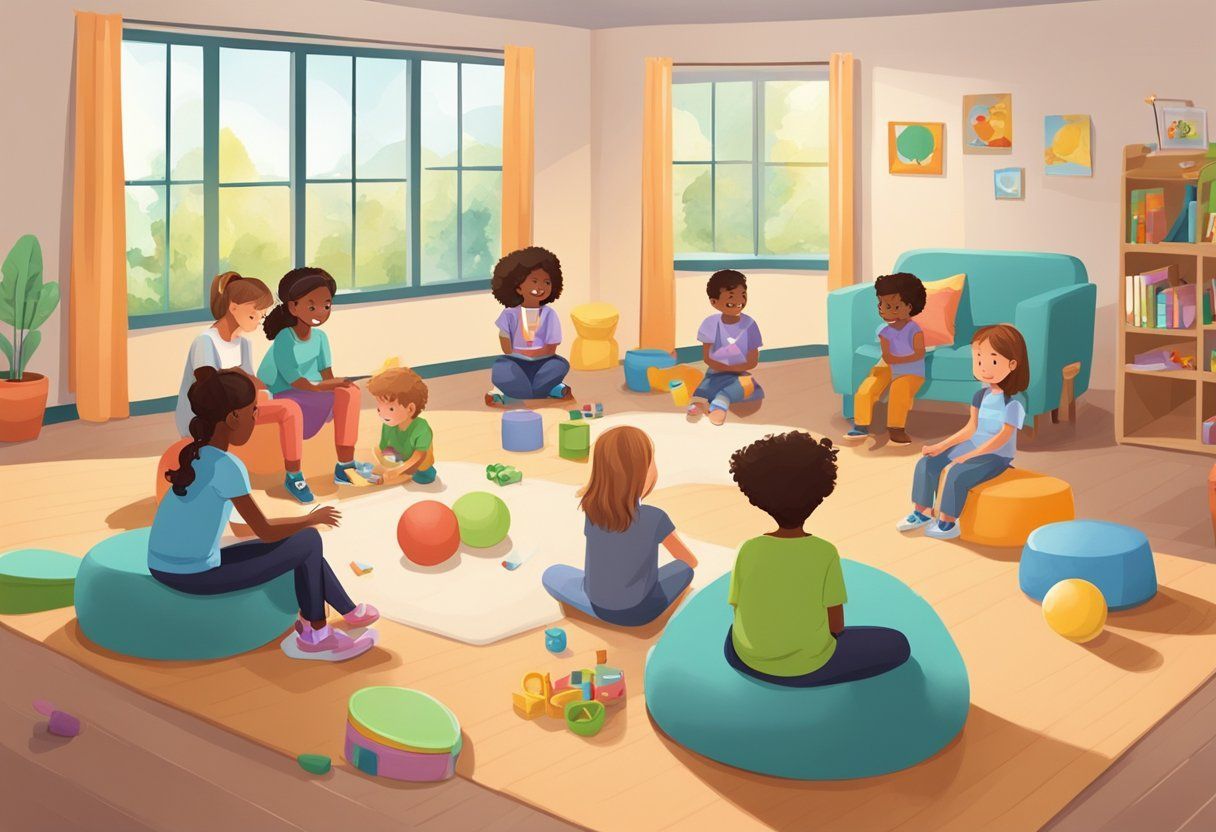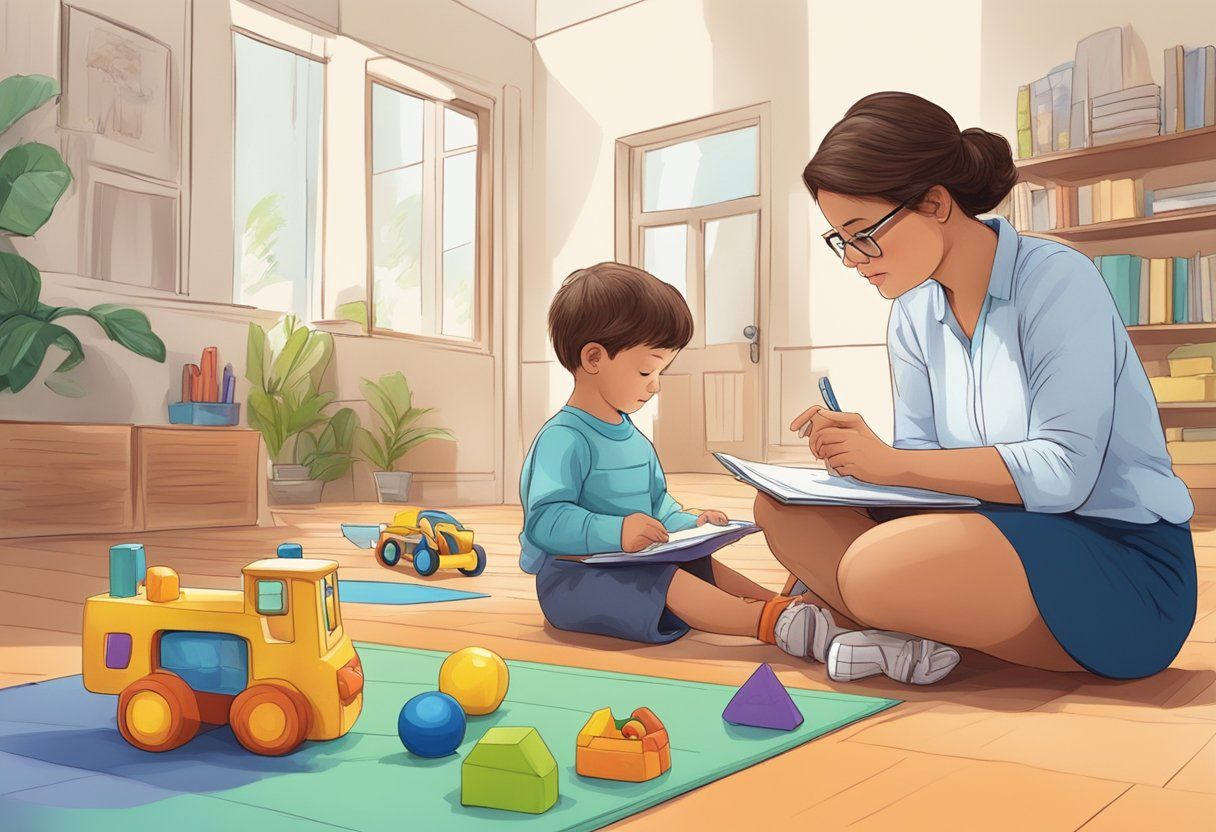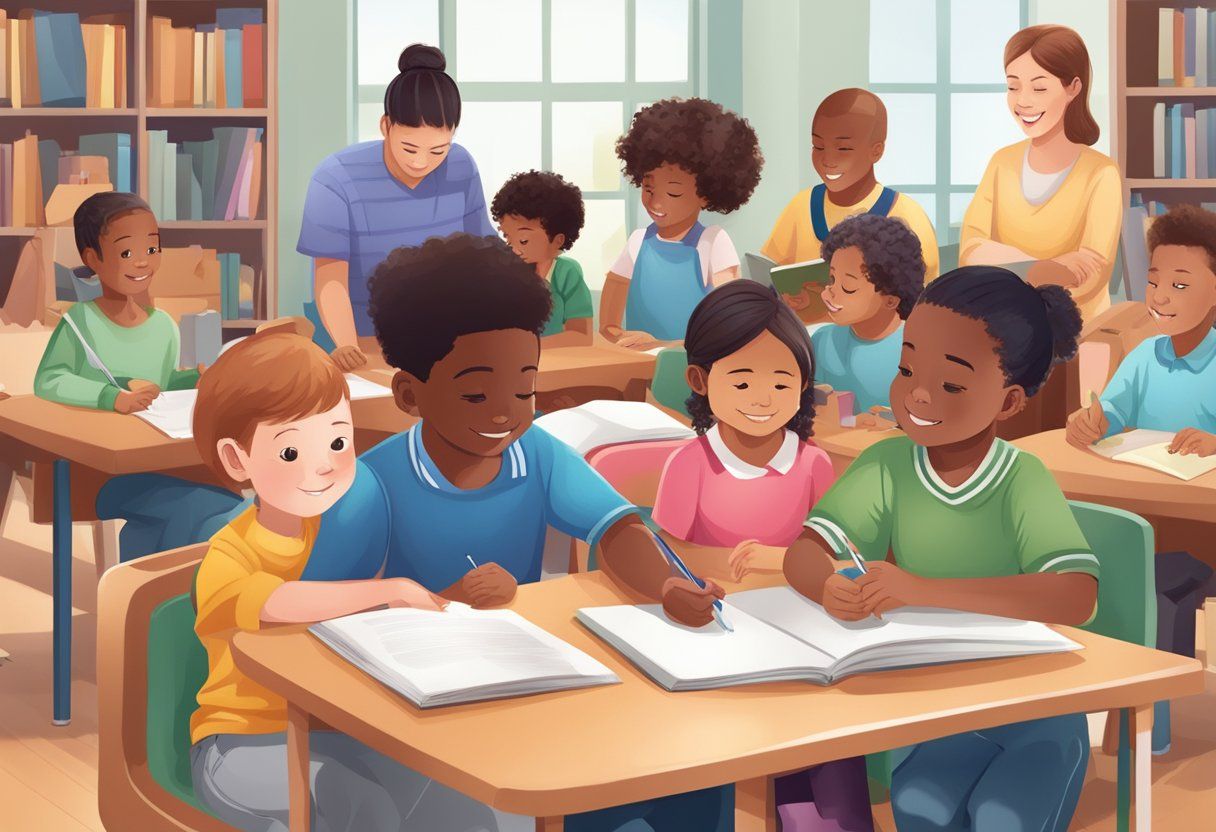BLOG
Categories
Behavioral Therapy Approaches for Adopted Children: Effective Strategies and Benefits
Understanding Behavioral Challenges in Adopted Children
Adopted children may face unique behavioral challenges due to experiences of trauma, loss, and challenges with attachment. These issues can manifest in various ways, impacting their emotional and mental health.
Understanding these challenges is crucial to providing effective support.
Common Behavioral Issues and Emotional Distress
Adopted children may exhibit behavioral issues ranging from oppositional behavior to emotional outbursts. Common problems include attention deficits, tantrums, and difficulty adapting to change.
Emotional distress symptoms such as anxiety, depression, and mood swings can often appear, rooted in past experiences of loss or instability. It is helpful to observe these behaviors as potential signals of underlying issues.
Recognizing these signs allows you to address them proactively. This creates a supportive environment that promotes healing.
Impact of Trauma, Loss, and Grief
Many adopted children have faced trauma or loss before adoption, including separation from birth families and sometimes abuse or neglect. These experiences often result in grief and posttraumatic stress, which can affect their behavior and emotional health.
Symptoms might include hyper-vigilance or withdrawal. Acknowledging the impact of trauma is vital to understanding their needs.
Addressing these experiences with sensitivity and offering support, such as psychotherapy or counseling, can help them process these emotions.
Attachment Issues and Problematic Behaviors
Attachment issues are common among adopted children. They can lead to problematic behaviors like aggression, difficulty forming relationships, or showing indifference towards caregivers.
These issues may arise from inconsistent caregiving in their early years. Secure attachment is crucial for healthy emotional and social development.
Building trust over time through consistent, nurturing interactions helps mitigate these issues. Engaging in attachment-focused therapy can be beneficial to strengthen bonds and reduce problematic behaviors.
Attachment-Based Behavioral Therapy Approaches
Attachment-based approaches are essential in addressing the unique emotional needs of adopted children, promoting secure bonds and managing attachment difficulties. These methods draw on attachment theory, focusing on early relationships and their impact on emotional development and behavior.
Attachment Theory and Secure Attachments
Attachment theory, introduced by John Bowlby, emphasizes the importance of early bonds between children and their primary caregivers. These bonds shape the child's emotional and social development.
In behavioral therapy, building secure attachments is crucial. Adoptive parents play a key role in promoting these bonds by responding sensitively to their child's needs.
This helps children develop trust and emotional security. Understanding the child's history and attachment style can guide intervention strategies, fostering stronger connections and healthier relationships.
Attachment-Focused Therapy and Empathy
Attachment-focused therapy involves understanding and improving the emotional connections between adopted children and their caregivers. Empathy is a core component, helping caregivers respond effectively to a child's emotional cues.
The therapy encourages caregivers to be attuned to the child’s emotional needs, which strengthens bonding. This empathetic approach enhances the child's sense of safety and support.
Therapists work with families to identify and address attachment issues. They guide parents to adapt their responses to meet the child's unique needs better.
Dyadic Developmental Psychotherapy
Dyadic Developmental Psychotherapy (DDP) is designed to help children with attachment issues, particularly those who have experienced trauma or disruptions in early relationships. This therapy involves both the child and caregiver, focusing on creating a secure, nurturing environment.
The therapist facilitates open dialogue, encouraging emotional expression and reflection. This allows the child to process past experiences and develop trust.
The goal of DDP is to improve emotional regulation and foster strong, healthy attachments. Through guided interactions, this therapy aims to rebuild the child's sense of safety and connection.
Addressing Reactive Attachment Disorder
Reactive Attachment Disorder (RAD) presents significant challenges for adopted children and their families. This disorder stems from severe attachment disruptions, often seen in children with early neglect or trauma.
Attachment-based therapeutic interventions are essential in managing RAD. They focus on creating consistent and supportive environments, helping children form stable attachments.
Therapists work closely with adoptive parents, offering strategies to stabilize the child’s emotions and behaviors. By promoting empathy and understanding, these interventions aim to reduce anxiety, enhance bonding, and facilitate positive interactions within the family.
Evidence-Based Behavioral Therapy Interventions
This section explores key behavioral therapy interventions for adopted children, focusing on cognitive behavioral therapy, family involvement in therapy, and managing anxiety and emotional regulation.
Each approach emphasizes building trust and addressing mental health issues.
Cognitive Behavioral Therapy for Adopted Children
Cognitive Behavioral Therapy (CBT) is an effective approach for addressing mental health issues in adopted children. It helps them deal with trauma, anxiety, and emotional regulation challenges.
CBT works by helping children identify negative thought patterns and develop healthier coping strategies. For adopted children, CBT can improve their adjustment process and emotional well-being.
It teaches them to replace unhelpful thoughts with positive ones, leading to better behavior and mental health outcomes. Involving adoptive parents in CBT can strengthen the child's support system and strengthen family bonds.
Family Therapy and Involving Adoptive Families
Family therapy plays a crucial role in addressing the unique needs of adoptive families. It focuses on enhancing communication, trust, and emotional connections within the family unit.
For adoptive families, these factors are vital for a smooth transition and fostering a sense of belonging. In family therapy, parents and children engage in activities that promote understanding and closeness.
Therapists guide families in addressing challenges specific to adoption, such as identity issues and attachment problems. By involving all family members, therapy can help create a more accepting and supportive environment.
Managing Anxiety and Emotional Regulation
Managing anxiety and emotional regulation is essential for the well-being of adopted children. These children may experience heightened anxiety due to past trauma or adjustment difficulties.
Evidence-based treatments provide strategies to help children manage these emotions effectively. Therapies like trauma-focused cognitive behavioral therapy (TF-CBT) are designed to reduce anxiety and improve emotional regulation.
They teach children techniques such as deep breathing, mindfulness, and relaxation exercises. By learning these skills, children become better equipped to handle stress and emotions in a healthy way.
Adoptive parents can play a supportive role by reinforcing these strategies at home and helping their children practice them regularly.
Supporting Adoptive and Foster Families During Treatment

Adopted and foster children often need tailored support through therapy. The role of parents, the child's identity, and connections with birth families are crucial points to consider.
Monitoring progress also plays a vital part in ongoing care.
Role of Adoptive Parents and Foster Parents
Your involvement is essential in helping children feel secure and understood. By being consistent and present, you build trust and encourage open communication.
Advocating for your child's needs during therapy sessions is crucial. Participate actively by attending therapy sessions and using learned strategies at home.
This helps children adapt better to changes and develop coping skills. Playful interactions during daily routines can strengthen relationships and foster a sense of safety.
Addressing Identity and Birth Family Connections
Children may grapple with questions about their background and identity. Encourage open conversations about adoption and birth families.
Providing honest and age-appropriate information helps build a child's self-esteem. Honoring a child's heritage and culture plays a key role in identity formation.
Engage with activities that celebrate their background. Maintain connections with birth families when possible, as they can provide valuable insights and context.
This helps children to form a more complete sense of self.
Child Assessment and Monitoring Progress
Regular assessments help gauge a child's development and emotional well-being. These evaluations guide therapy plans, ensuring they are tailored to the child's needs.
Working with therapists allows you to track improvements and adjust strategies accordingly. Set clear goals and celebrate achievements, even the small ones.
Keeping a journal of progress can be useful for noting changes and patterns in behavior. Stay in close communication with therapists to ensure treatment is effective and beneficial for your child.
Frequently Asked Questions

Adopted children may face unique behavioral and emotional challenges. Addressing these issues often involves understanding trauma, recognizing signs, and engaging in supportive therapeutic activities.
What are common behavioral issues experienced by adopted children?
Adopted children may exhibit anxiety, attachment difficulties, or oppositional behavior. They might also struggle with trust and forming relationships.
Behavioral therapy helps address these concerns by offering strategies to manage emotions and behavior effectively.
How does adoption trauma impact adult behavior and psychology?
Adoption trauma can influence self-esteem, relationship-building, and emotional regulation in adulthood. It may lead to difficulties in trusting others and can affect how adopted individuals perceive themselves and the world around them.
What therapeutic activities can support adopted children?
Art therapy, play therapy, and family counseling are effective for adopted children. These activities allow them to express emotions, develop social skills, and build strong family bonds.
Engaging in consistent therapy is beneficial for emotional healing and growth.
Can adoption in early infancy lead to psychological effects later in life?
Yes, even when adopted in infancy, children can experience psychological effects like identity issues or attachment challenges. Early and ongoing support can mitigate long-term impacts.
What are the typical signs of trauma in children who have been adopted?
Signs of trauma may include sudden mood swings, nightmares, fearfulness, or withdrawal. They might also display difficulties in school or have issues with self-esteem and trust.
Recognizing these signs is key to getting the right help.
How does adoption trauma affect brain development?
Trauma from adoption can impact brain development, affecting areas related to stress response, emotional regulation, and cognitive function.
Early interventions can help support brain development and emotional health.
RECENT POSTS
Bringing and keeping families together!










